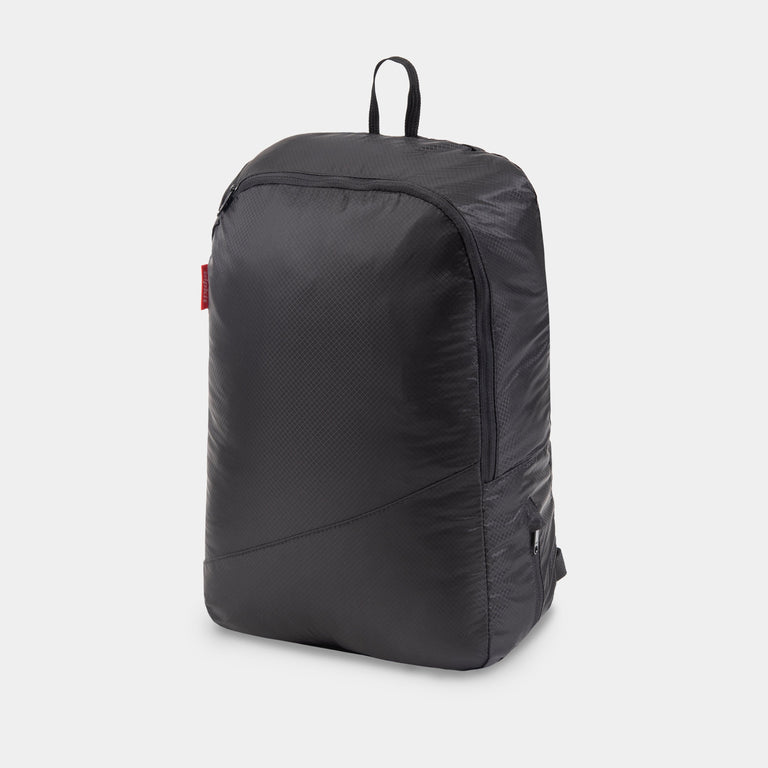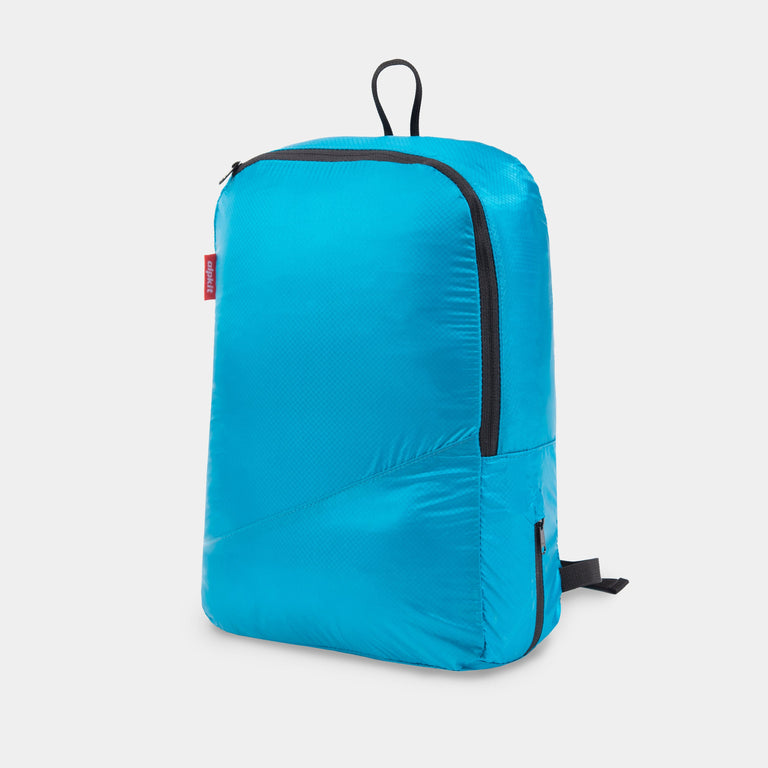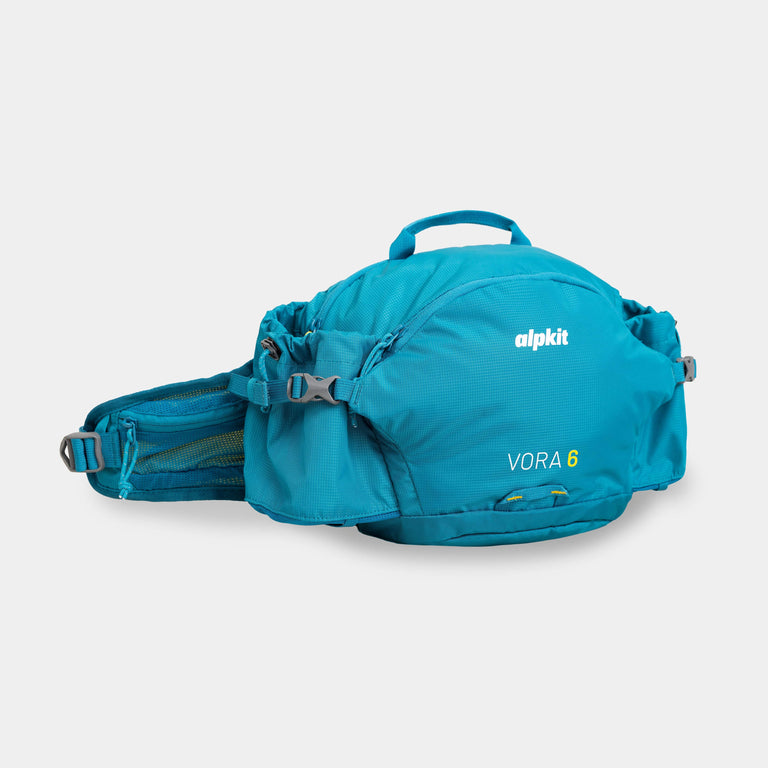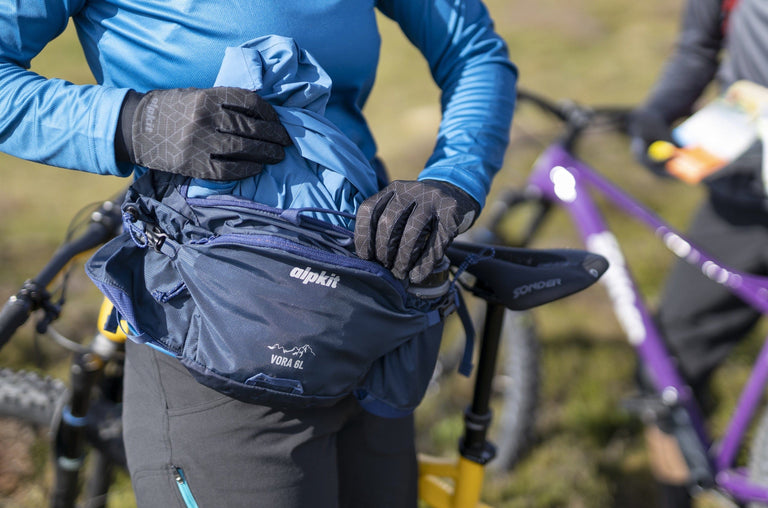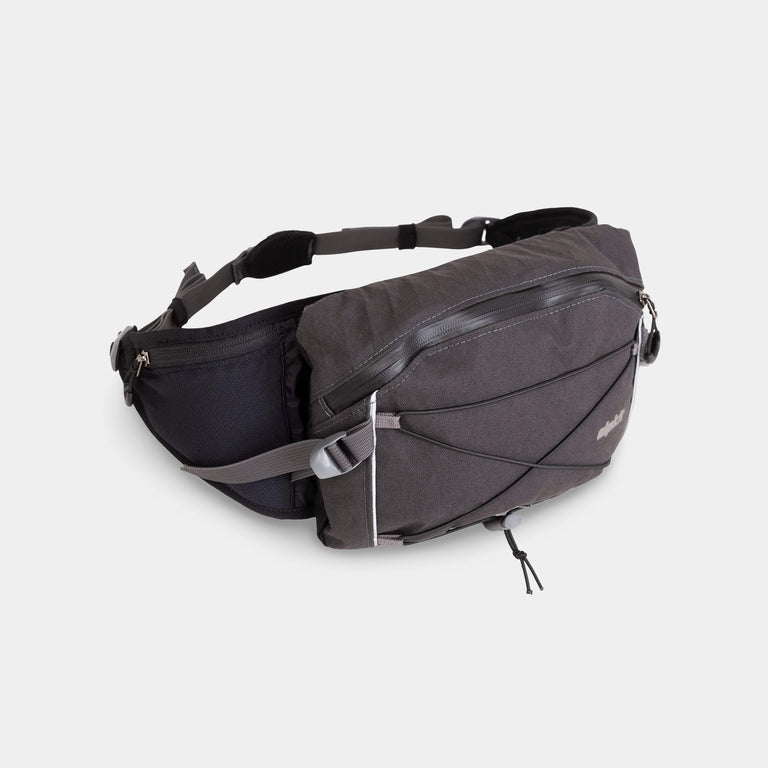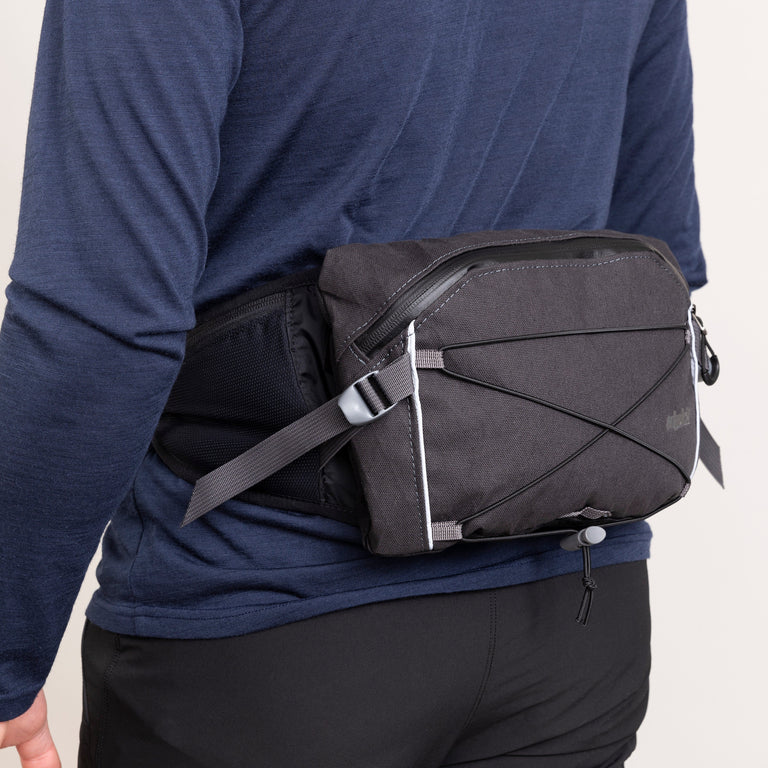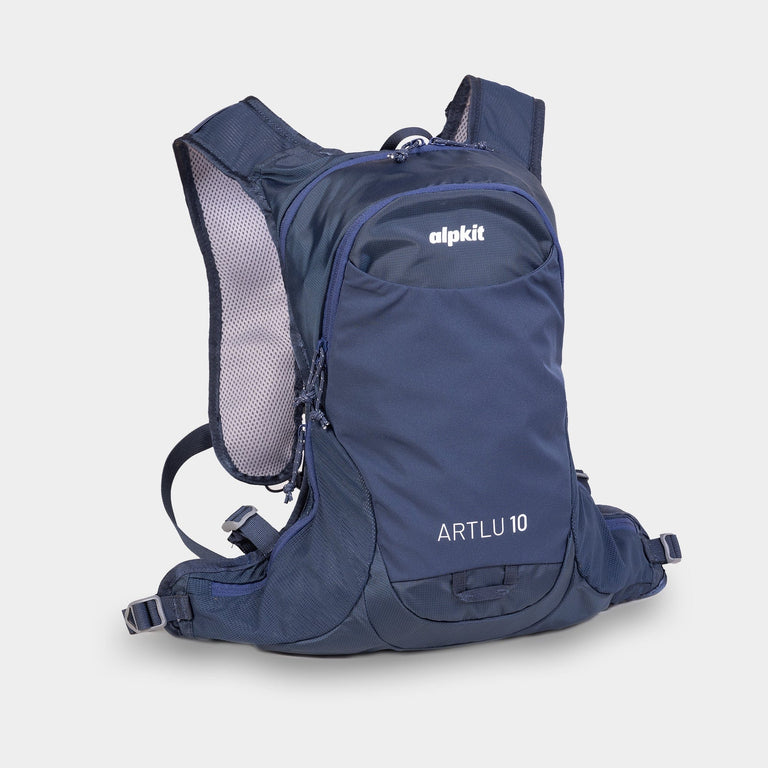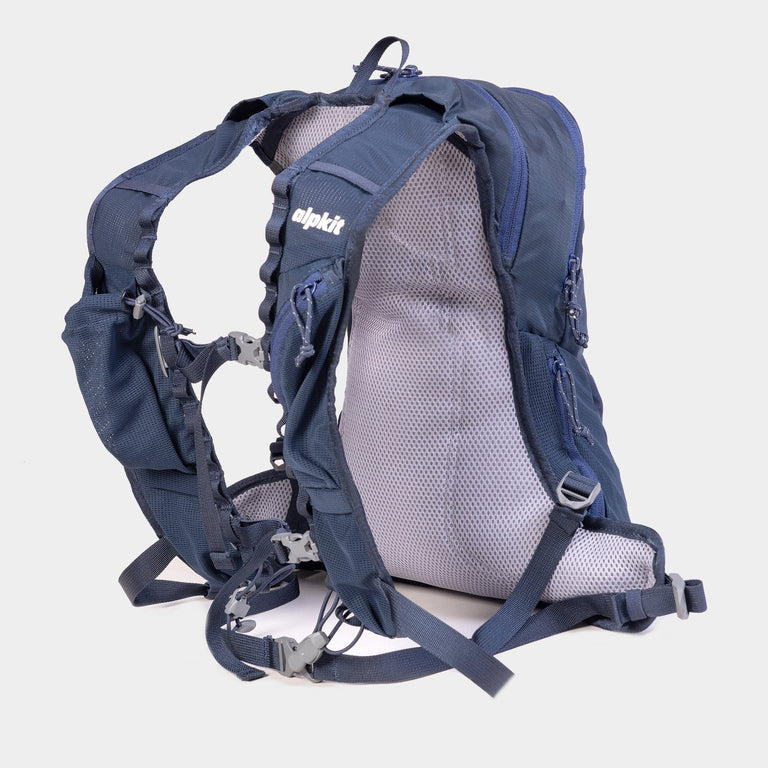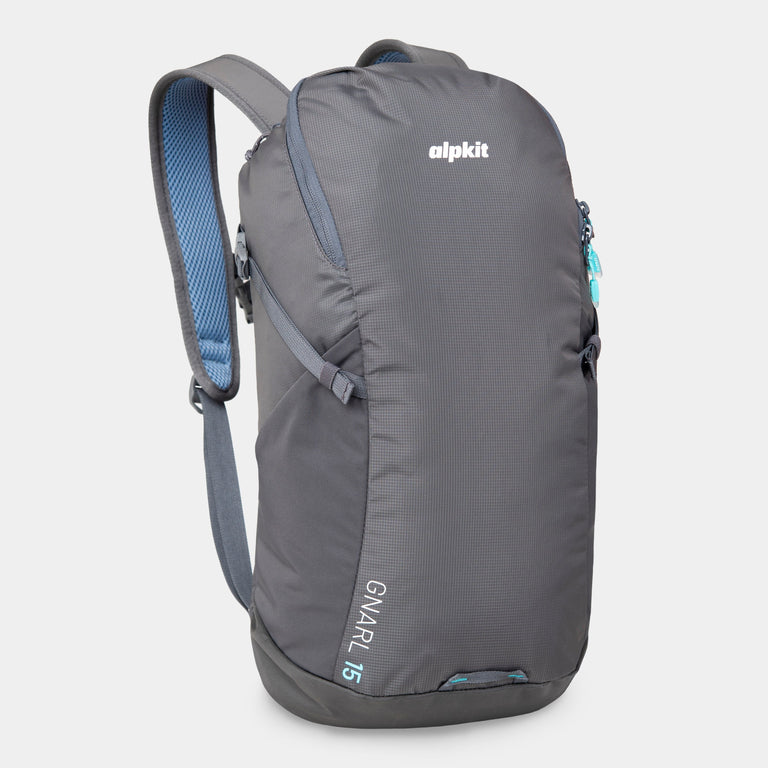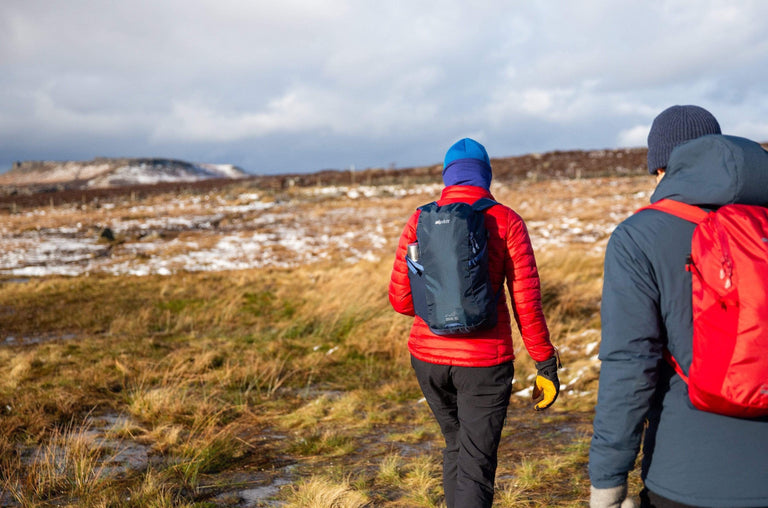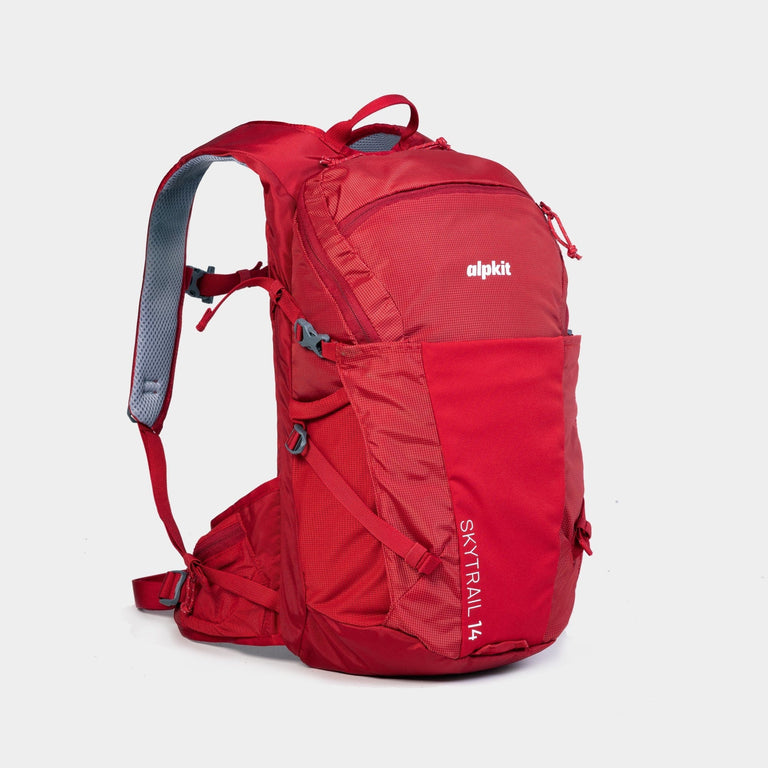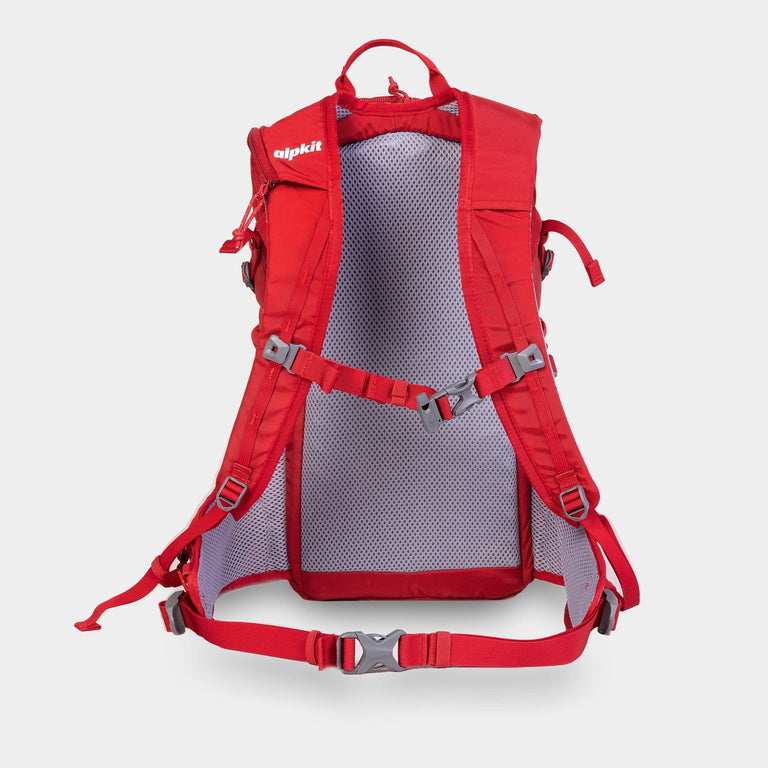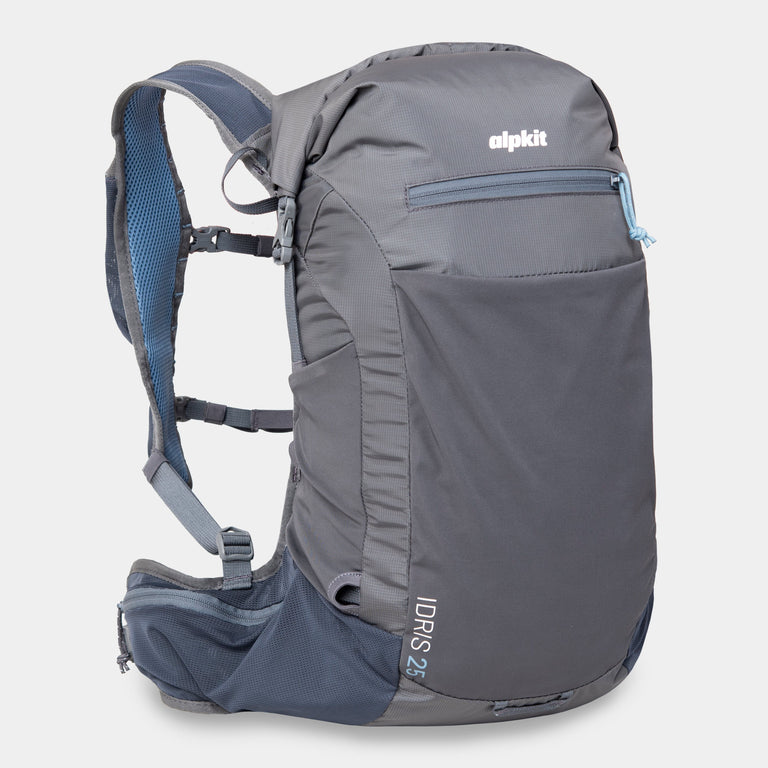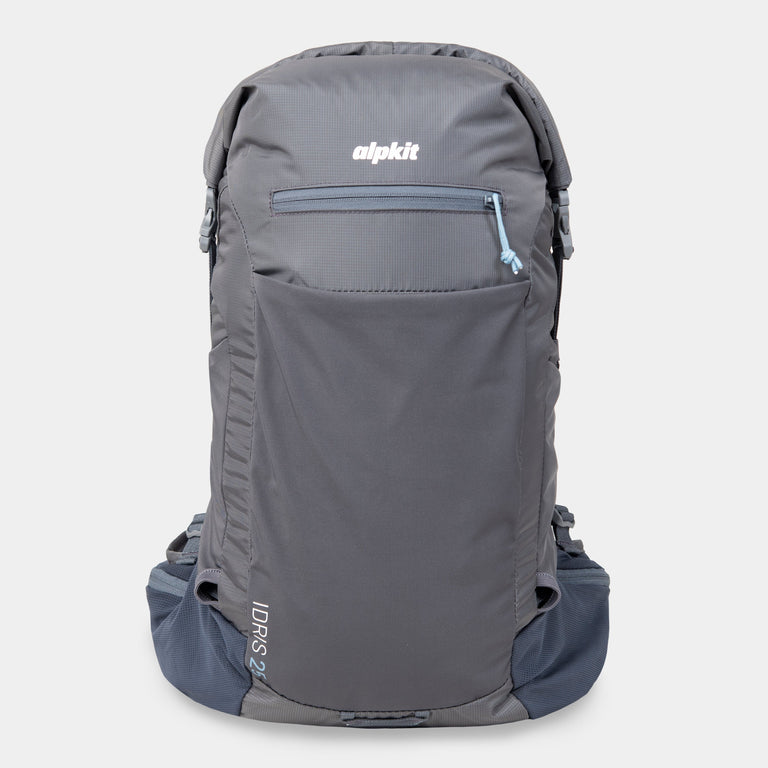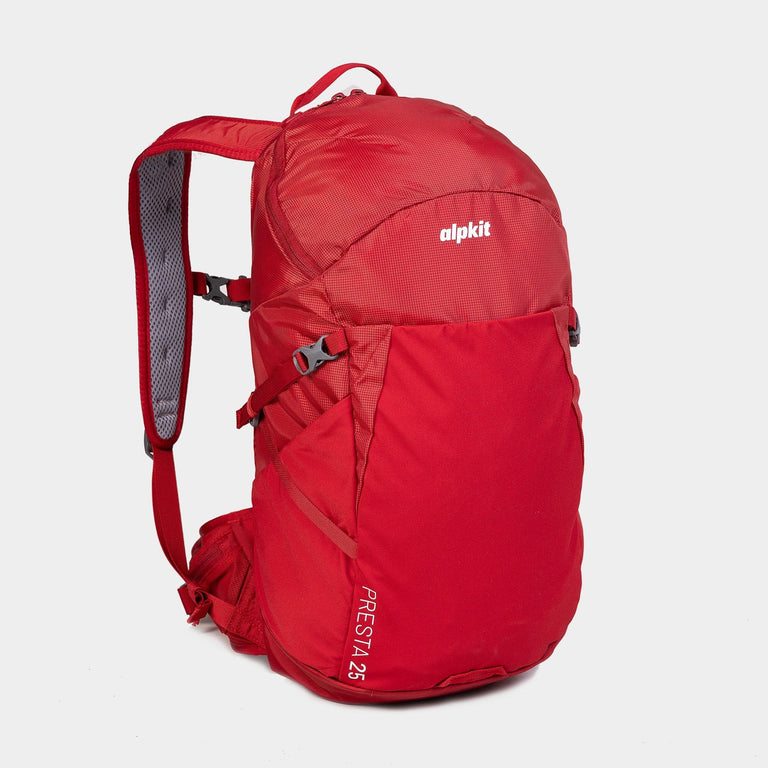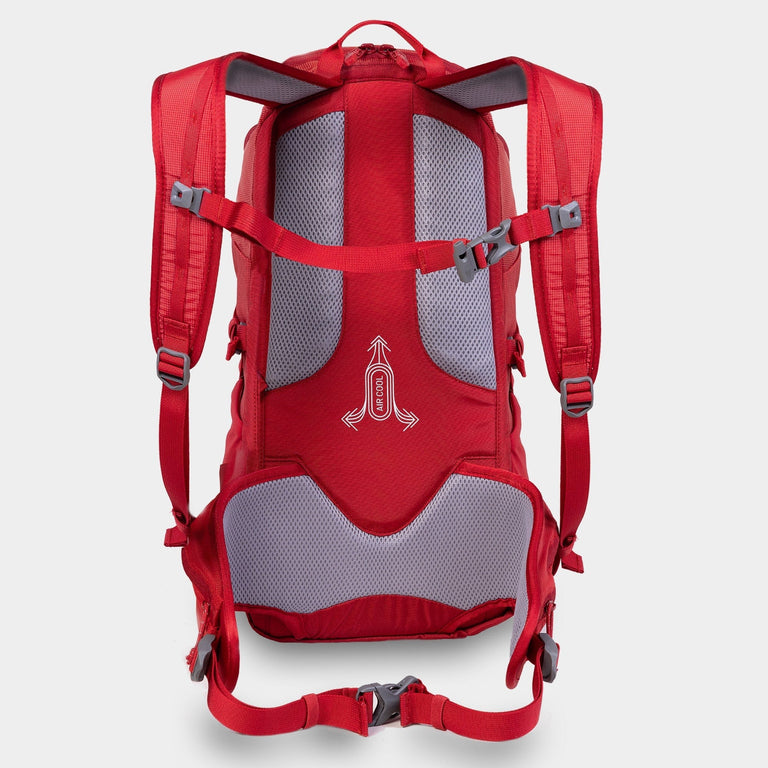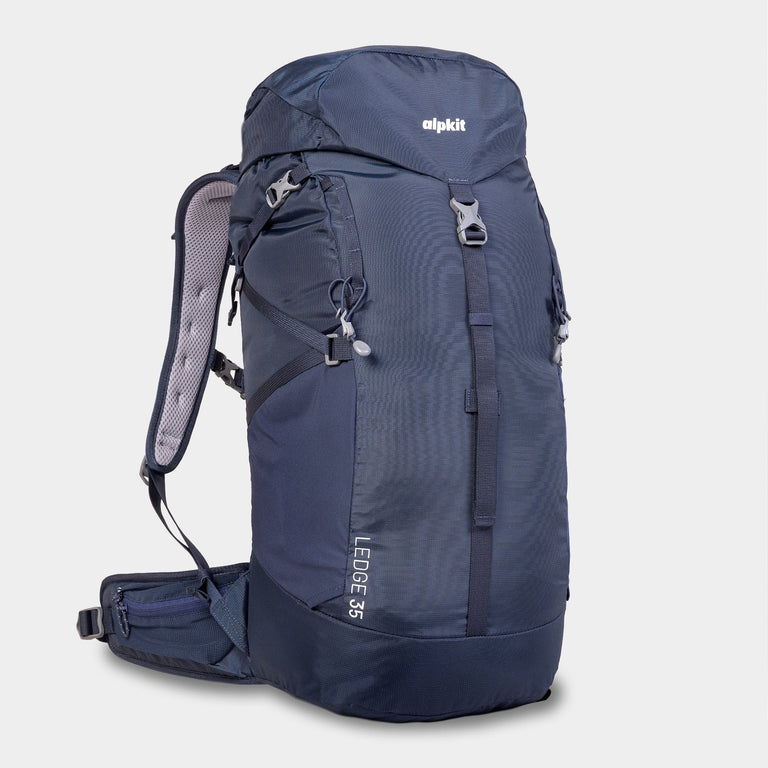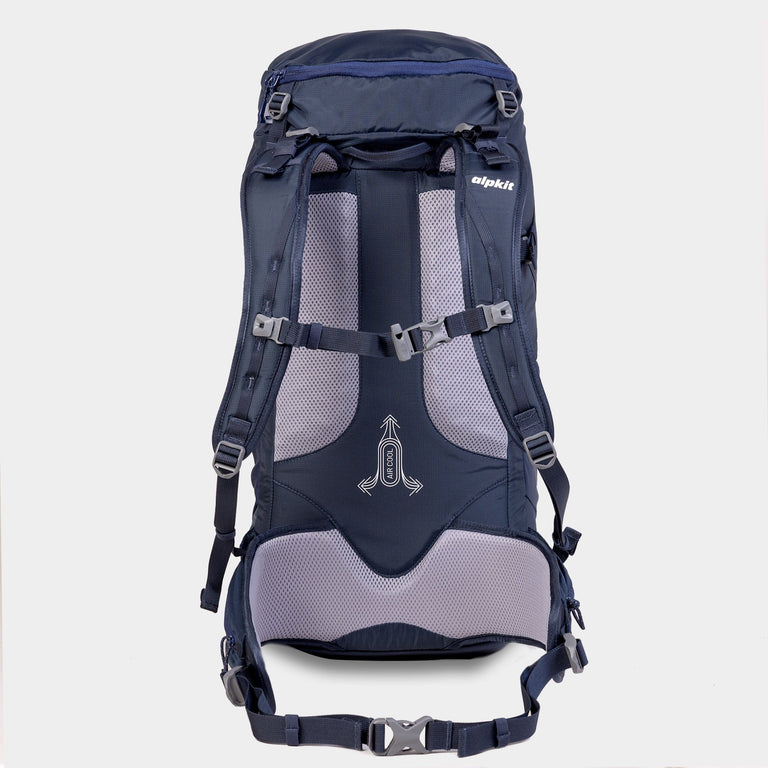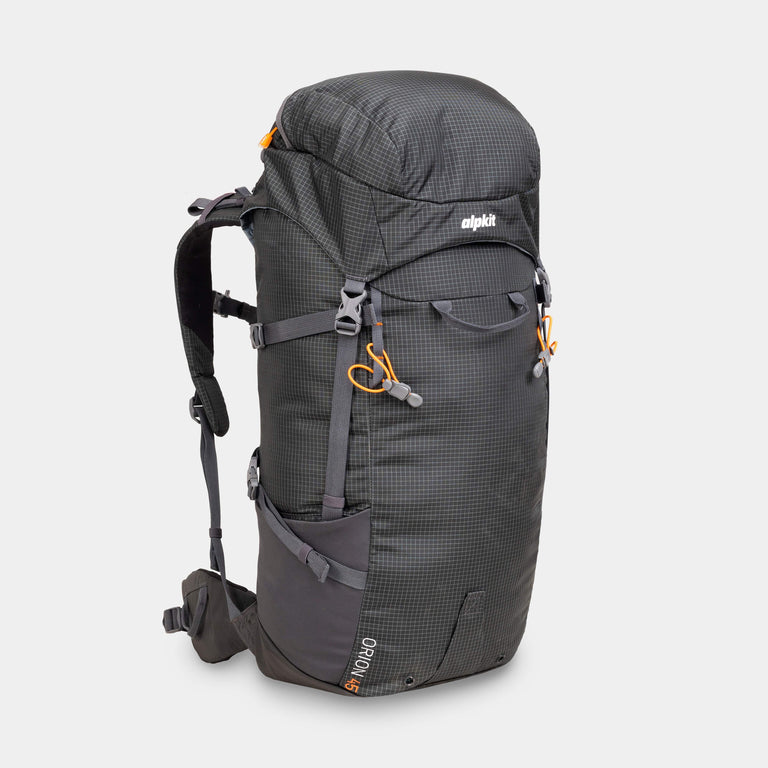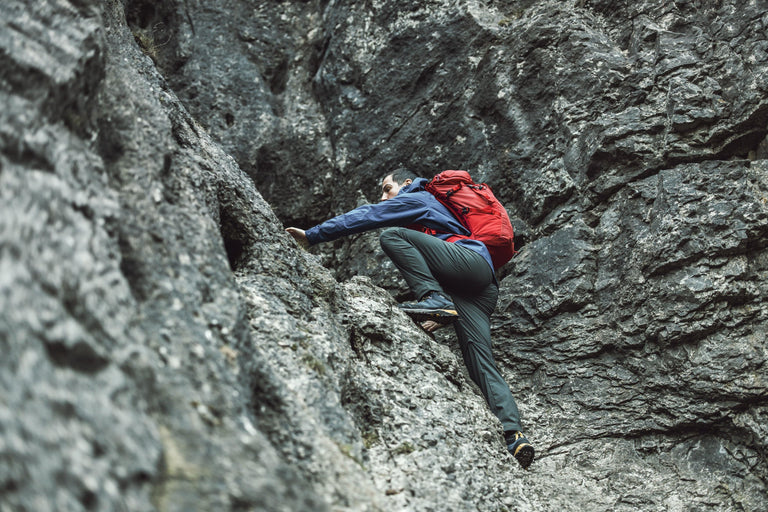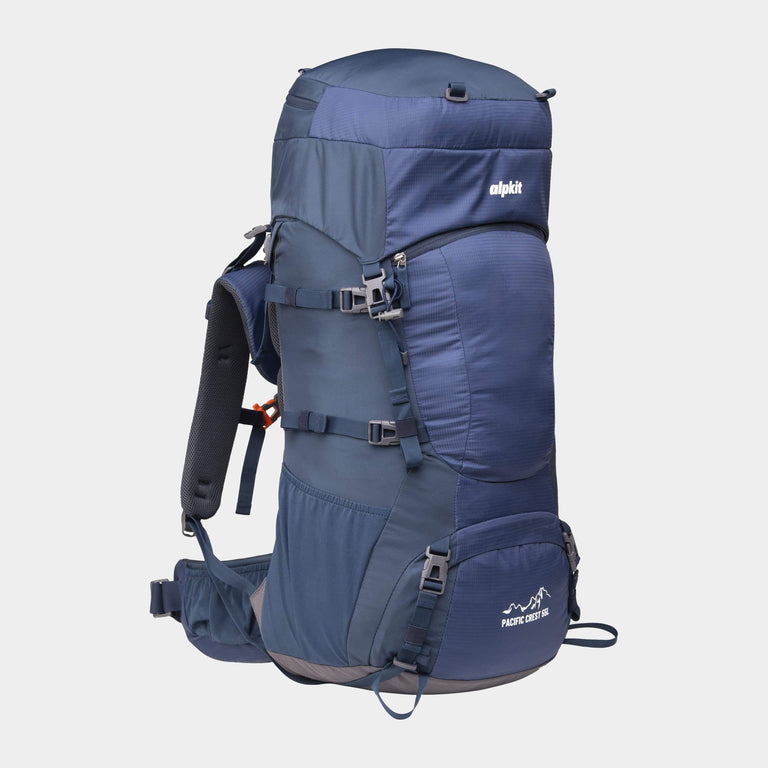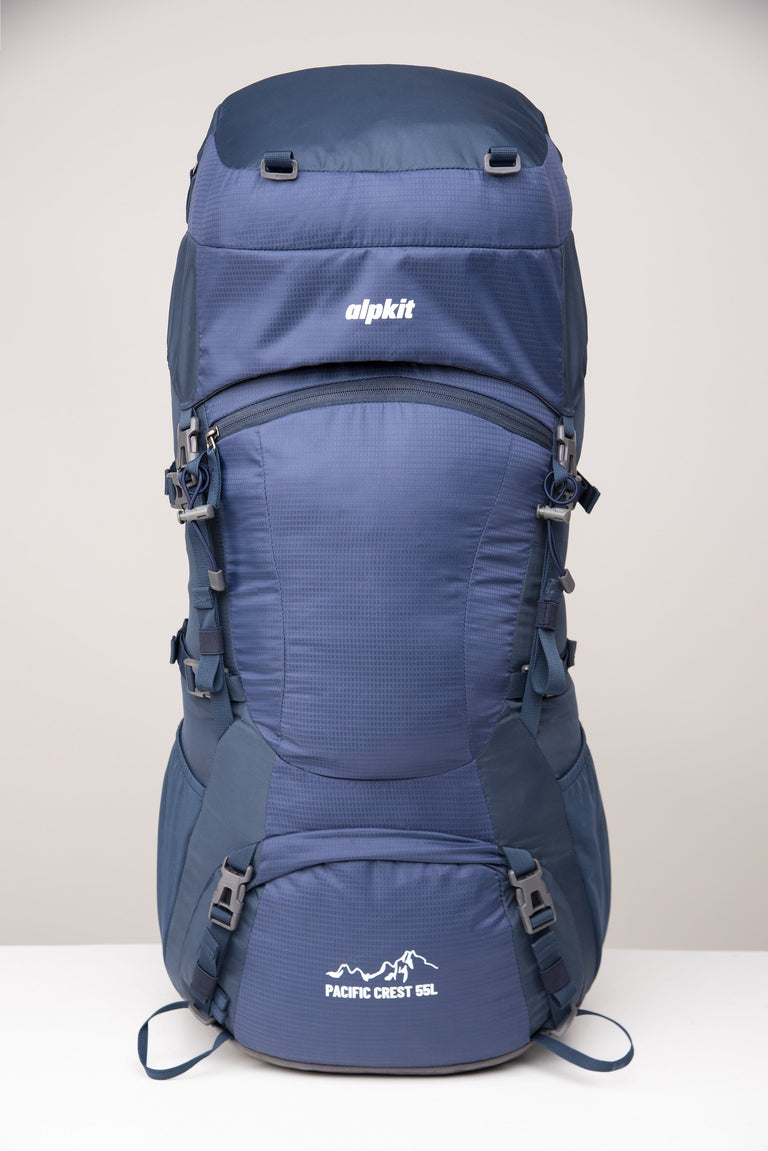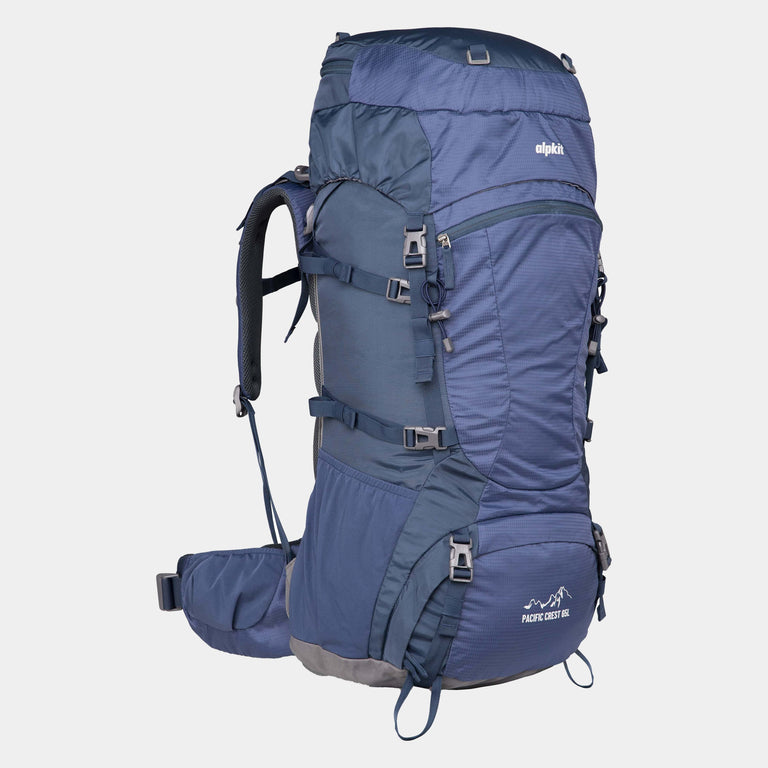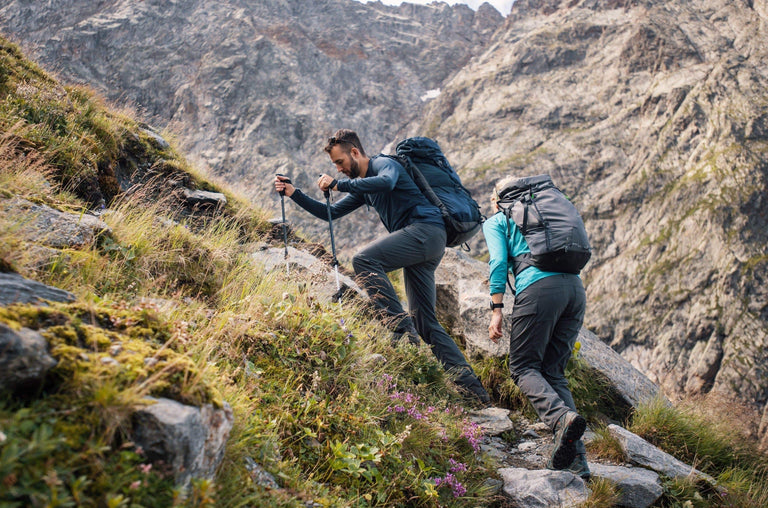
Discussing the complexities of food planning for backpacking, from choosing suitable snacks to optimizing pack weight.
Planning what food to take on your backpacking trip is much more than a logistical task; it is your chance to turn each mealtime into an event you can look forward to, even when many miles from civilisation.
Planning your meals within the broader aspects of your trip, like location and activity, makes the experience even more cohesive. By taking opportunities to source local produce you can save weight, diversify your menu and make more sustainable choices.

How much food do I need to take backpacking?
How much food to bring backpacking depends on a huge range of different factors including: length of trip, daily mileage, difficulty of terrain, the amount of elevation gained, pack weight, body weight, your metabolism – the list is endless. The best way of looking at is in terms of calories, i.e. how many calories to consume.
The recommended daily allowance of calories for men and women is 2,500 and 2,000 respectively, but that’s before you take a day of backpacking into account. You could feasibly burn double that if you’re spending 8-10 hours carrying a full rucksack over rough mountain terrain – possibly even more than double!
It might mean carrying more weight but it’s always sensible to carry more food than you think you’ll need – especially on longer trips. If you’re planning to embark on a multi-day trip, go for for an overnight trip first and count how many calories you need to stay full and energised over two days – this should give you a pretty good idea of how much to take. There are also various hiking calorie calculator tools available online.

What kind of food should I take backpacking?
Take food that is high in calories, lightweight, packs easily (won’t suffer from being squashed), and won’t go off if it gets warm – soft cheeses aren’t a great idea in the height of summer!
Carry enough calories
It’s always a good idea to take backpacking food with a high ‘calories to grams carried’ ratio and a low pack-size, but don’t forget about basic nutrition! You could spend a week eating massive blocks of chocolate and pastries but it wouldn’t be very good for you. Eating a balance of carbohydrates, proteins and fats is important too, ensuring you recover properly for the next day.
Dehydrated and freeze-dried meals
Dehydrated and freeze-dried meals provide lots of calories in a light and small package, can be relatively nutritious (particularly whole meals made with natural ingredients) and only require boiling water to rehydrate, saving on gas. These make fast evening meals or breakfasts when you’ve got the shelter of your tent to retreat into while you boil up some water. Find our more about dehydrated meal options.
DIY backpacking food
Dedicated camping food pouches are the most convenient but can also be the most expensive, so you may find cheaper alternatives in the supermarket. Porridge oats make a filling breakfast and you can easily make your own evening meals by combining space-saving carbohydrates (like cous cous or instant rice and noodles) with some protein (meats, cheeses, dried beans, meat alternatives) and a bit of flavour (herbs, spices dried vegetables).
Fresh food and flavour
Flavour and texture are important too, as you can soon get fed up of eating the same foods. The Fell Foodie has some great tips on how to cook real food whilst hiking. Make sure you take food you know you’ll enjoy and actually look forward to eating, and bring a balance of sweet and savoury food. Adding some fresh fruit or veg will make your meals a lot more interesting, as will freeze-dried ingredients, herbs and spices. A bit of oregano, tomato puree and some sundried tomatoes won’t stop you getting scurvy but they can make a big difference to your morale, if nothing else!


What make good snacks for backpacking?
It’s better to take lots of easy to eat snacks with you for keeping on the move. One big lunch can make you feel lethargic and you’ll need to keep your energy topped up throughout the day. Try not to eat too many sugary foods full of basic carbohydrates. These will give you a quick rush but you’ll soon find your blood sugar dropping. The blood sugar rollercoaster is a bumpy ride. Besides all that processed sugar isn’t good for your gut bacteria – someone think of the gut bacteria! Here are some good lunch and snack ideas for during the day:
- Fresh fruit that can survive your rucksack like apples and oranges can be eaten early on in your trip to save weight.
- Dried fruit and vegetables provide much needed vitamins and minerals. Carrying fresh bananas in an overpacked rucksack never ends well, anyway!
- Trail mix with its mix of fats, proteins and sugars can keep you going all day. It’s easy to make your own with your favourite fruit and nuts.
- Hard cheeses will also keep you going, containing lots of calories, fat and protein. They might start to go a bit funny in hot weather but you can always trim the manky bits off!
- Dried meats like jerky and cured sausage keep for a long time and are also full of calories, fat and protein. Not one for vegetarians or vegans though!
- Wraps and crackers keep much better than bread and take up far less space in your pack. But you could always strap a baguette to the outside for the first two days!
- Energy bars provide a great mix of basic and complex carbohydrates to give you a boost of sugar and keep you going for longer. Look for bars that use natural ingredients with less processed sugar.
- Peanut butter and other nut butters are full of calories, fat and protein, keeping you going for longer.
- Chocolate and sweets – there’s no denying their benefits for quick energy when you’re feeling wobbly!

How to save on your backpacking food weight
Taking calorie rich foods is one way to reduce the weight of your backpacking food, as is taking foods low in moisture. Repackaging your food also allows you to take only what you need and can make packing more efficient. You could start your trip with a big cafe breakfast or finish it at a pub to reduce the amount of food you have to bring.
There are other tips to save weight indirectly too. Simply reducing your cooked meals to one a day allows you to take half the amount of gas. And if you need to boil water for cooking, cooking near a water source means you don’t have to carry all that water with you all day.


Extra backpacking food tips
- Olive oil adds lots of extra calories to your evening meal for very little weight. It does make it messier to clean your pan after though!
- Carrying a small amount of salt, pepper, herbs and spices (mixed Italian herbs and garam masala are good options) can make evening meals much more interesting.
- Milk powder is a useful addition if you prefer porridge, muesli or granola in the mornings. You can add it to your tea and coffee too if you like to start or finish your day with a hot drink.
- Always take some high calorie emergency food for if you find yourself running really low on energy. It’s a good idea to take something that isn’t too tempting too, so you don’t scoff it all on the first day!
How to plan your food for your backpacking trip
You might find it helpful to plan out exactly what you’re going to eat each day, separated into breakfast, lunch, snacks and dinner. Some of us prefer to bung a load of food with the best calorie to gram ratio in a bag and make it up as we go. But planning each day’s meal, and working out how many calories that provides, gives you a better chance of both making sure you have enough to eat and avoid carrying unnecessary weight.
It also allows you to eat anything that might go off first and choose the highest energy meals for the hardest days of walking – perhaps saving a convenient dehydrated meal pouch for that day. With a few trips under your belt, you’ll soon have your food planning sorted.
